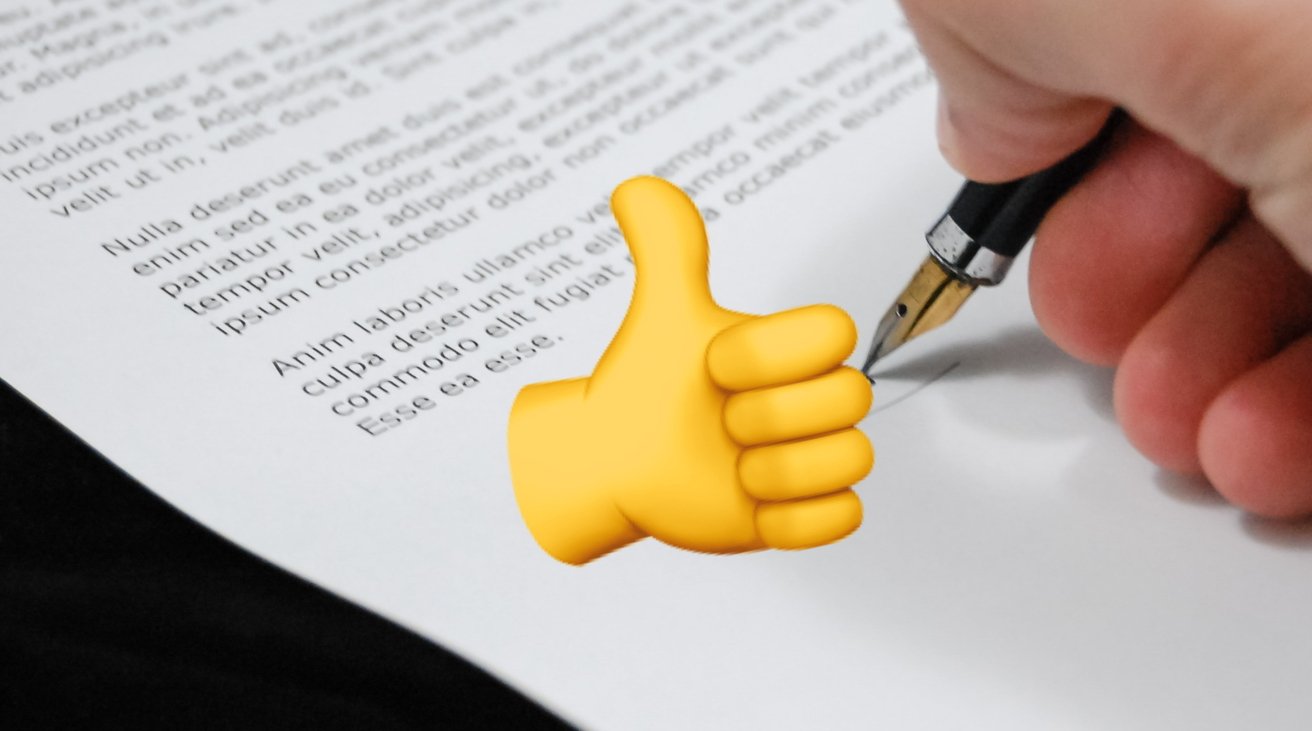Be careful how you emoji in the future, after a Canadian judge ruled that sending someone a "thumbs-up" symbol in a message can potentially enter you into a legally binding contract.
The King's Bench for Saskatchewan issued a summary judgment on June 8 that could have serious implications for users of messaging services. While they may not necessarily be seen as serious communications, it's possible for responses to be taken as agreeing to the terms of a contract.
In the lawsuit between South West Terminal and Achter Land & Cattle, reports the Guardian, a grain buyer in South West Terminal sent a mass text message to clients in March 2021, saying the company was willing to buy 86 tonnes of flax for C$17 ($12.73) per bushel.
Farmer Chris Achter spoke to the buyer over the phone about the request. The buyer then sent an image of a contract to Achter about the delivery of flax in November of that year, asking the farmer to "please confirm flax contract" in the message.
Achter responded with a thumbs-up emoji, and that's where the confusion lies. The farmer claimed in the lawsuit that the symbol was intended to mean he had received the contract in the message, while the buyer believed it was Achter agreeing to the contract.
"I deny that he accepted the thumbs-up emoji as a digital signature of the incomplete contract," Achter told the court. "I did not have time to review the Flax Contract and merely wanted to indicate that I did receive his text message."
South West Terminal offered that there had been previous instances where contracts were handled and agreed upon with the emoji.
Ultimately, because of the confusion, the farmer failed to make the delivery to South West.
Justice Timothy Keene mentions in the ruling that the disagreement on what the emoji meant led to a "far flung search for the equivalent of the Rosetta Stone in cases from Israel, New York State, and some tribunals in Canada, etc. to unearth what [the emoji] means."
The court eventually determined that the thumbs-up emoji is a "non-traditional means to sign' a document but nevertheless under these circumstances this was a valid way to convey the two purposes of a signature."
While the affair gives one emoji a legally-definable meaning in one court in Canada at least, the judge doesn't believe it would "open up the flood gates" to other emojis being interpreted in such legal means. However, he also said the court cannot and shouldn't "attempt to stem the tide of technology and common usage" of emojis.
Due to the ruling by Justice Keene, Achter has been ordered to pay C$82,000 ($61,442) to South West Terminal for failing to fulfill the contract.
 Malcolm Owen
Malcolm Owen







-m.jpg)






 Charles Martin
Charles Martin
 Wesley Hilliard
Wesley Hilliard
 Stephen Silver
Stephen Silver
 William Gallagher
William Gallagher

 Marko Zivkovic
Marko Zivkovic
 Andrew Orr
Andrew Orr
 Amber Neely
Amber Neely









26 Comments
This judge needs to have his head examined. Unless the document or an existing law states a digital signature or any emoji can be used as a replacement for a hand written signature an emoji doesn’t constitute legal signing. Judges can’t make this stuff up. Judges only interpret laws then can’t make them, at least not in the US.
Rob53, this was in Canada.
I would definitely be appealing this ruling if I were the farmer. His own definition of what the thumbs up emoji could mean as a response is perfectly reasonable.
My question about this is: Was there a meeting of the minds? It does not appear so.